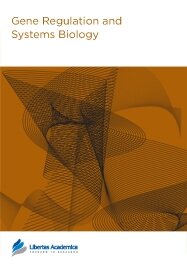

Publication Date: 01 Oct 2010
Type: Original Research
Journal: Gene Regulation and Systems Biology
Citation: Gene Regulation and Systems Biology 2010:4 83-90
doi: 10.4137/GRSB.S5871

Sulfur mustard (SM), is an alkylating agent and has been emerged as a chemical weapon in various battlefields. More recently, SM was employed in the Iraq conflict against Iranian military forces and civilians. Nowadays there are more than 40,000 people suffering from pulmonary lesions special chronic obstructive pulmonary disease (COPD) due to mustard gas in Iran. SM causes the endogenous production of reactive oxygen species (ROS). Heme oxygenases (HOs) are the rate-limiting enzyme for heme metabolism. Numerous studies have confirmed that HOs are concerned in diverse biological processes such as anti-oxidation.
The present study was undertaken to consider the regulation of HO-1 and HO-2 n the human airway wall, and to suggest a probable role that HOs may play in cellular defense against oxidative stress due to SM. In this research ten unexposed SM individuals and twenty SM exposed patients were included. Evaluation of HO-1& HO -2 expressions in unexposed and SM exposed patients samples was performed by semiquantitative RT-PCR, real-time RT-PCR and Immunohistochemistry analysis. While unexposed SM samples expressed same levels of HOs, expression level of HO-1was upregulated about 3.58 ± 1.93 folds in SM exposed patients in comparison with unexposed ones, we could not find any difference in expression of HO-2 n two groups. In contrast, Immunohistochemistry results showed negative HO-1 protein expression in SM injured patients.
Our results revealed that HO1 may plays an important role in cellular protection against oxidative stress due to mustard gas toxicity in airway wall of SM exposed patients at mRNA level, but translational modifications might cause decrease in the amount of HO1 protein.
PDF (1.24 MB PDF FORMAT)
RIS citation (ENDNOTE, REFERENCE MANAGER, PROCITE, REFWORKS)
BibTex citation (BIBDESK, LATEX)
XML
PMC HTML

Publishing in Gene Regulation and Systems Biology was a very positive experience. I was impressed by the fast and uncomplicated submission process as well as the clear and professional peer review process which helped to improve the manuscript. The Libertas Academica team was very patient and helpful. I would definitely recommend the journal to other colleagues in the field!
Facebook Google+ Twitter
Pinterest Tumblr YouTube